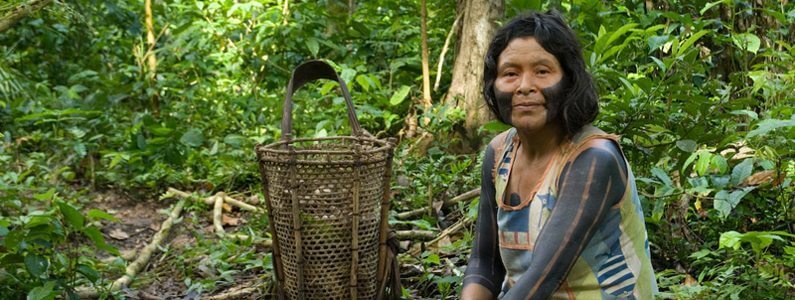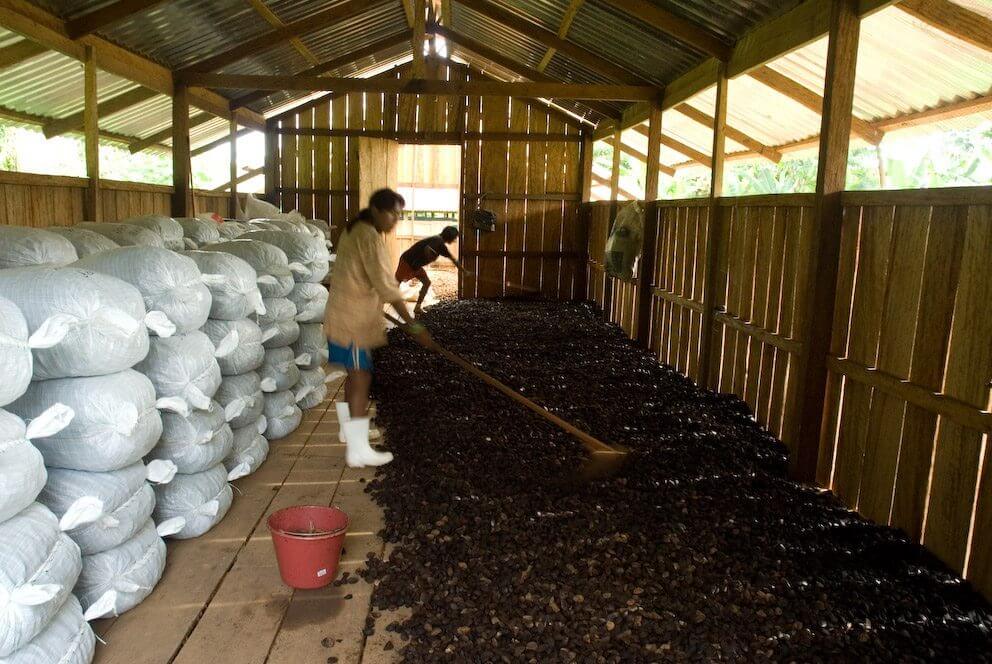
Kayapo: Sustainable Economic Development
The Kayapo seek economic development in their communities so that members have cash to buy the manufactured items they have come to need. In order to help the Kayapo gain economic autonomy while conserving the forest ecosystem on which their culture is based, the ICFC and other NGO partners support development of non-timber forest product enterprises. To be successful, these enterprises must be based on the existence of relatively stable markets for the product but also importantly, must fit with normative aboriginal values of equity, cooperation, and reciprocity achieved by consensus and common-property access. All members of a community should have the opportunity to participate and earn money from the venture.
The Kayapo NGOs and their partners are successfully developing small sustainable businesses in Kayapo communities:
- Brazil nut: the best developed as far as sales and number of communities involved. With the help of their NGOs, Kayapo from over 20 communities harvested and sold over $200,000 worth of Brazil nut to domestic buyers in 2014
- Cumaru seeds; like Brazil nut, the cumaru seed is produced by a primary forest tree species and is harvested after it falls to the ground. Cumaru seeds are used by the cosmetics industry and enjoy a growing market. About 20 communities are involved and this enterprise is expanding
- Art and bead jewelry: growing markets for traditional Kayapo designs in beadwork; especially bracelets and necklaces but also other items such as t-shirts and baskets. There are sales outlets in Rio de Janeiro (Tucum), Canada (Kayapo project), internet (IK) and the local frontier town Kayapo NGO office bases of Novo Progresso and Tucuma. Many communities are involved.
- Field station and international field course: the pioneer conservation and development project with the Kayapo founded by Dr Barbara Zimmerman and the community of A’Ukre in 1992. The success of this venture led to expanded NGO support for the Kayapo and impact across all Kayapo lands beginning in 2000. Today, the AUkre field station hosts two annual international field courses (University of Maryland and U of Brasilia; Purdue University and U of Uberlandia) that are an important source of equitable income for the community.
- Sportfishing: the pristine Iriri river protected within Kayapo lands teems with game fish and is ideal for sport fishing. The community of Kendjam is prepared to host and guide a sportfishing camp managed by the company “Untamed Angling”. This pilot project has been authorized by the federal Indian agency FUNAI and promises to be the start of another important sustainable development option for Kayapo in the future: sportfishing and ecotourism.
Several other non-timber product options also hold promise and are in earlier stages of development including; jamborandi leaves, copaiba oil, babacu oil, cocoa, native tree species seeds and manioc flour (farinha).
